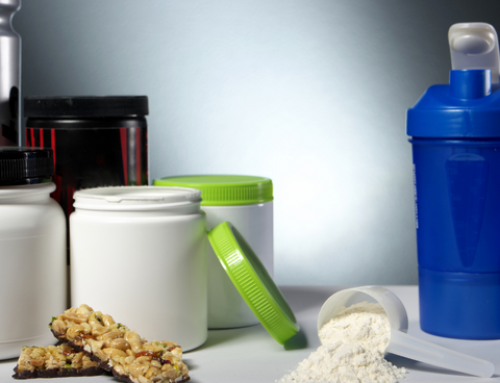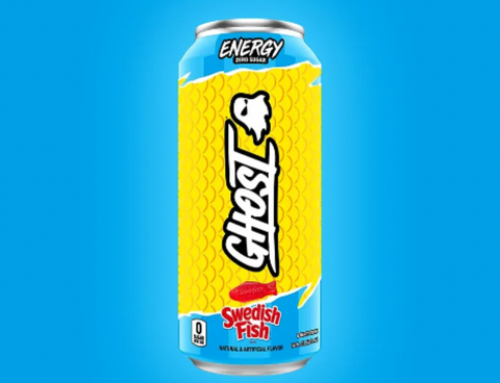You Asked For It: Is Bee Pollen “The Most Complete Food In The World”?
At STACK, our mission is to cover every aspect of sports performance, offering information and services that athletes need. Hearing bee pollen referred to as “the most complete food in the world,” Twitter user @Ulimond asked us for more information. After researching the topic, we can report that bee pollen has many health benefits—and it’s quite popular with athletes.
“Bee pollen contains a wide variety of nutrients,” says nutritionist Owen Bond, “so much so that it is believed to be one of the most complete food sources known, as cited in Contemporary Nutrition.” No wonder bee pollen has garnered interest from athletes. Look what’s inside one bee pollen capsule. According to Bond, “Bee pollen consists of about 55 percent carbohydrate, 35 percent protein, five percent fiber, three percent vitamins and minerals and two percent essential fatty acids.” Sounds like a nutritional home run for any athlete!
How about those vitamins and minerals? Bond breaks it down: “Bee pollen contains high concentrations of B vitamins, including folate, and it is also a good source of vitamins C, D and E.” Calcium, iron and magnesium [along with 25 other minerals] are also present in bee pollen. What else? It’s filled with antioxidants, so it can take out free radicals [unhealthy cells] like a linebacker sacking a quarterback. “Most complete food in the world” now sounds less like a claim and more like a fact.
As always, it’s advisable to consult a doctor or a registered dietician before taking a supplement. Like most supplements, bee pollen can have side effects. If you are allergic to bees, stay away from bee pollen. It can cause allergic reactions ranging from itchy eyes and throat to wheezing and coughing to anaphylactic shock. Consult your physician before finding out the hard way that you are subject to such effects.
More research is underway about bee pollen’s effects on athletes, but if this word from a fellow athlete has convinced you, talk to your doctor about trying some. And please share your experience with bee pollen supplements on our Facebook wall or on Twitter.
What else would you like STACK to cover? Tweet us @STACKMedia or use the hashtag “#STACKletes.”
Source: Livestrong.com
Photo: bee-pollen-supplement-guide.com
RECOMMENDED FOR YOU
MOST POPULAR
You Asked For It: Is Bee Pollen “The Most Complete Food In The World”?
At STACK, our mission is to cover every aspect of sports performance, offering information and services that athletes need. Hearing bee pollen referred to as “the most complete food in the world,” Twitter user @Ulimond asked us for more information. After researching the topic, we can report that bee pollen has many health benefits—and it’s quite popular with athletes.
“Bee pollen contains a wide variety of nutrients,” says nutritionist Owen Bond, “so much so that it is believed to be one of the most complete food sources known, as cited in Contemporary Nutrition.” No wonder bee pollen has garnered interest from athletes. Look what’s inside one bee pollen capsule. According to Bond, “Bee pollen consists of about 55 percent carbohydrate, 35 percent protein, five percent fiber, three percent vitamins and minerals and two percent essential fatty acids.” Sounds like a nutritional home run for any athlete!
How about those vitamins and minerals? Bond breaks it down: “Bee pollen contains high concentrations of B vitamins, including folate, and it is also a good source of vitamins C, D and E.” Calcium, iron and magnesium [along with 25 other minerals] are also present in bee pollen. What else? It’s filled with antioxidants, so it can take out free radicals [unhealthy cells] like a linebacker sacking a quarterback. “Most complete food in the world” now sounds less like a claim and more like a fact.
As always, it’s advisable to consult a doctor or a registered dietician before taking a supplement. Like most supplements, bee pollen can have side effects. If you are allergic to bees, stay away from bee pollen. It can cause allergic reactions ranging from itchy eyes and throat to wheezing and coughing to anaphylactic shock. Consult your physician before finding out the hard way that you are subject to such effects.
More research is underway about bee pollen’s effects on athletes, but if this word from a fellow athlete has convinced you, talk to your doctor about trying some. And please share your experience with bee pollen supplements on our Facebook wall or on Twitter.
What else would you like STACK to cover? Tweet us @STACKMedia or use the hashtag “#STACKletes.”
Source: Livestrong.com
Photo: bee-pollen-supplement-guide.com












